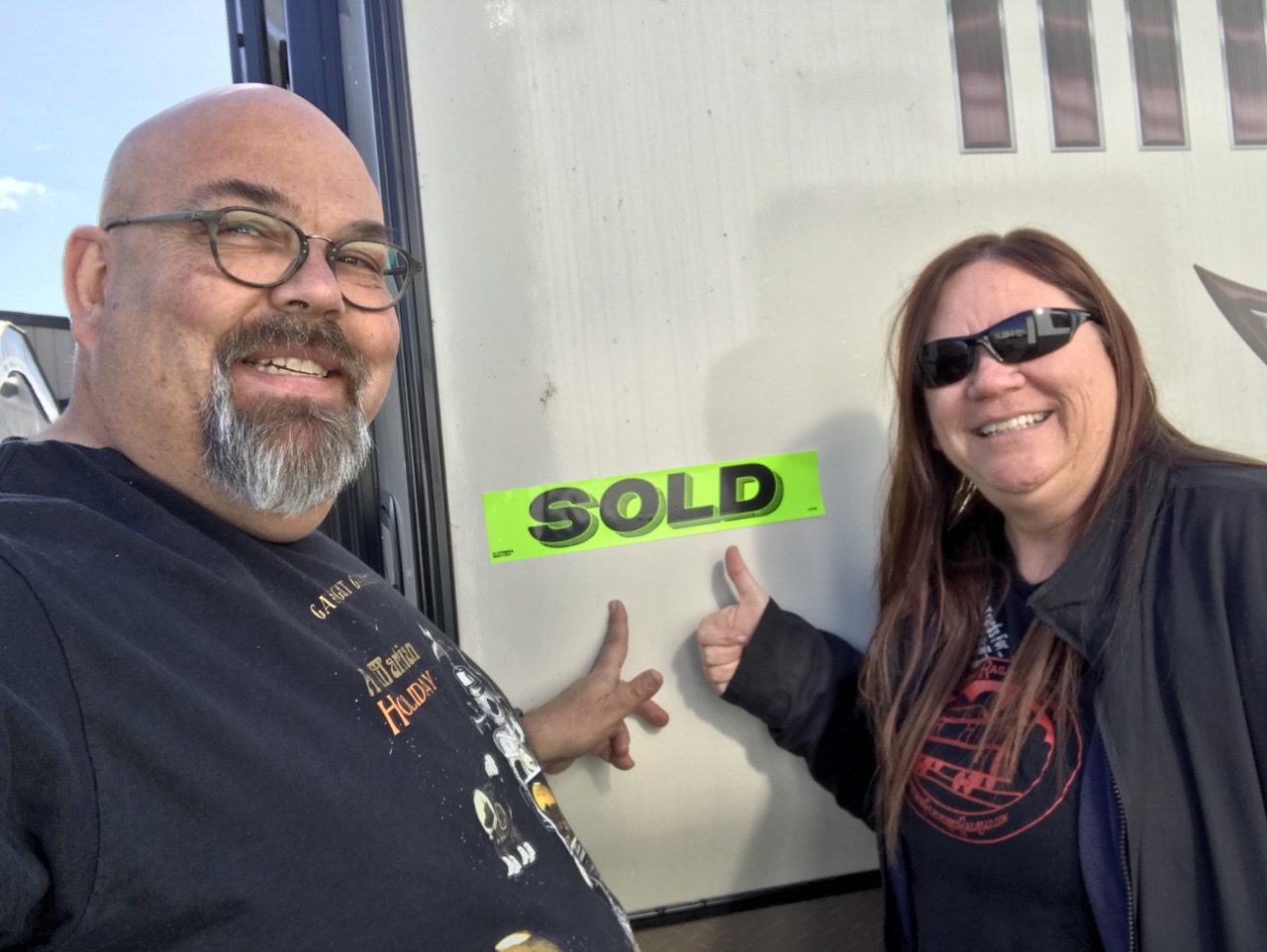Full Time RV living: 15 resources for finding work
15 places to find work for full-time RVers
How do you find work while full-time RVing? There are a lot of full-time RVers who want to pay for this lifestyle while also enjoying full time RVing. With that in mind, here is a list of 15 resources for finding work on the road.
We also have some ideas of how much you can make and even tips from work camping experts.
What is work camping?
Work camping is finding work while on the road. This can be trading your camp site for a specific series of tasks or specific hours and there are also opportunities where you can be paid and also get a discounted or even free place to camp. There are opportunities that include full hook-ups and some that offer limited availability of services. There are even cases where you may be completely off the grid.
Work camping can also be seasonal. There are opportunities where you can work a specific period of time, a season or a specific number of hours. Typically these are spelled out in advance so you know what you’re getting into.
Advantages
There are a lot of reasons why work camping can make sense. The most obvious of those is the the fact that the payment and/or camping privileges can help stretch your RVing dollar. These opportunities may be well suited for full-time RVers who have the ability to travel but you may also be able to find work near your home which gives you the opportunity to try out the experience to see if it’s for you.
Another benefit to work camping is that you find friends and like-minded individuals where you are. John & Kathy Huggins of the Living the RV Dream podcast often mentioned that they made friends when they work camped that have stayed friends for years.
They also described the fact that, in many tourism-focused areas, there are discounts or even free passes to attractions and destinations in the area. For example, you might find local zoos, museums, eateries and other local attractions offer inexpensive and sometimes even free passes to help you become more familiar with them with the thinking that you’ll share this with the people where you’re working.
What kind of jobs
There are almost no limits to the kinds of jobs you might find out on the road. It is fair to say that many jobs are focused around the campground and RV-related lifestyle so you might start with that arena.
If you do work in a campground know that you may be asked to tap on your skills including things like front office and reservations, handling customer challenges, cleaning and maintaining the pool, operating maintenance equipment, doing routine maintenance and even just cleaning the toilets.
If a campground needs a job done and has work campers, know that that job might be yours whether it’s something you really enjoy or something less fun.
You may also find yourself indoors in an office setting but may also find that you’re working the whole day outdoors. If you’re doing landscaping or maintenance it’s highly likely that you’ll spend whatever your working hours are on things that are outside.
Further, sometimes the work can be relatively physical and it’s not unheard of that you may spend 8, 10 or even 12 hours doing activities that can require you to be on your feet. Of course this depends on the employer and the job, but it’s something that may be the case.
In fact we have numerous friends who are couples and work camp and find that campgrounds can offer roles that might be considered stereotypical. By this we mean that the husband may find himself outside with wrenches and garden equipment while the wife spends her days indoors dealing with the customers.
Time
Often work camping jobs are defined partially by a time commitment. This can be the amount of time you spend in a given pay period and likely will also include the duration.
You might find that a company wants you to commit to a whole season, a specific number of months or other length of duty.
How much can you make
How much can you make work camping? There’s no single answer for this and part of the compensation can include your camp site, or discounts on the camp site. There are certainly opportunities where there’s a decent amount of pay in addition to a site but, typically, these are rare.
You might expect to make somewhere slightly above minimum wage plus a site as a basis for starting your inquiry into this life style. Know, too, that you’re only earning when you’re working so if you find an opportunity that provides five months of income, you’re not making money when that opportunity has concluded unless you find the next job.
For some RVers this is just fine, for others it can be a frightening proposition. It’s another thing to keep in mind when planning this lifestyle.
Applying for work camper positions
Jodi Duquette Anderson, Executive Director of Workamper News, recommends applying for your dream work camping job six months before the date you want to start. They see work campers looking for fall/winter jobs beginning in April. Summer season recruiting begins in October, with a big push right after the holidays.
According to Anderson, this doesn’t mean that you can’t find a job on short notice. There are always last-minute openings, often thanks to no-call/no-shows. In addition, work camping has not been immune to the lack of workers that we are seeing across the country. To make sure you are opening yourself up to the largest pool of opportunities possible, start your research early.
Also, be the kind of work camper that an employer would want to hire.
Tips from Workcamper News:
Workamper News works with a wide range of employers and recommends these additional tips to improve your chances of being noticed and landing a job:
Follow the instructions provided by the employer when communicating with them. If they ask that all communications be done online, follow this ask.
Have a complete, easy-to-read resume with the info that employers want to see, but not so much text that they’ll just avoid reading it.
Keep your resume up to date. As soon as you accept a job, revise your availability date and preferences to the next season you are available for.
Include good photos of yourself and your RV with your resume (where you and your RV are clear and are the primary object in the photos).
If you submit an application or make the first contact with an employer – follow up! Wait a couple of business days for them to get back to you and if you don’t hear from them, send an email or call and leave a message (if they provided a phone number in their advertising) to confirm that they received your inquiry.
Network with other work campers. They may connect you with your next dream job. A referral from a former work camper of that employer may move your resume ahead in the pile.
Don’t do all the talking in the interview. Allow the employer to (and make sure that they) lay out all of the details of the opportunity. You need to get to know them as much as they need to get to know you, so you both can make the best choice in moving forward or not.
A few more tips
Get everything in writing. Things like hours, responsibilities, limitations, compensation and more are all critical things to know in advance and have in written form.
Figure out your own strengths, weaknesses and desires. You might find that some jobs are not your cup of tea at all and others might surprise you in how well you are suited to them.
If you do have any physical or other challenges that could prevent you from doing certain jobs, it’s wise to be up front about these in advance. While it may not seem so, the community of employers who hire RVers is smaller than might be apparent and there is communication amongst them so being the best you can be will go a long way to making sure you get hired by others.
In fact, we know of a few work campers who have been hired back to the same employer year after year. This can be either a blessing or a curse depending on one’s outlook.
Testing the waters
Let’s say you’re willing to give work camping a try but don’t want to fully commit yet. That’s fine too.
If you have a residence that you’re not sure you want to get rid of yet, know that many people make their entire mortgage and sometimes even more by renting those houses through services like AirBnB. You might also consider a short- or long-term rental of your house while you give work camping a try.
What about starting your own situation?
While it might seem that going your own route is a great option, know that being self-employed comes with a lot of work that never appears on social media. That five minute video or 1200 word article can sometimes take many, many hours to put together.
Growing content resources and information sources takes time and effort but growing an audience is much more than just great content. It takes marketing, website building, production, video editing, spelling, writing, networking, research and so much more. And that’s before you put the first mile on your RV! You may also have challenges with taxes and licensing depending on what you’re doing.
A business on the road has all the challenges of a business in a single location plus the added challenges of being on the road. While lots of content creators might make it look easy, know that the successful ones are successful for a reason and hard work and a very broad skill set are part of that reason.
Resources
Here are some resources that can help you in your quest for finding work on the road.
The StressLess Camping Podcast episode with Heath and Alyssa Padget who work camped their way across the US - listen now.
The StressLess Camping Podcast episode with RV SWAT who speak about working camping - listen now.
Alyssa Padget’s book: 50 Real Business Ideas for RVers
Work camper news. You can post your resume, browse jobs and then simply hit “apply” and your resume is sent to them. A leading resource for finding work on the road.
A popular work camping job is the sugar beet harvest. There are a number of jobs available in this seasonal opportunity - not necessarily picking beets. https://www.theunbeetableexperience.com/
Amazon Camperforce - Amazon is a huge employer that is often looking for seasonal or regional work and seeks out RVers. https://hiring.amazon.com/our-team/camperforce#/
Work camp at a campground - if you find a region or a campground that appeals to you it might be a good idea to contact them directly.
Work at KOA - workatkoa.com
Work at the National Park Service - https://www.nps.gov/aboutus/workwithus.htm
Work at an amusement park - https://www.indeed.com/career-advice/finding-a-job/high-paying-amusement-park-jobs
Xscapers.com - this membership organization has a pretty active job board listing
If you don’t necessarily want to be paid in money, but rather in experience and serving your country the government is always looking for volunteers. volunteer.gov
One of the boards with a lot of seasonal and regional work is coolworks.com
https://rverjobexchange.com - powered by Escapees
If you like an area and want to seek work there you might consider contacting chambers of commerce as well as tourism and visitor organizations.





